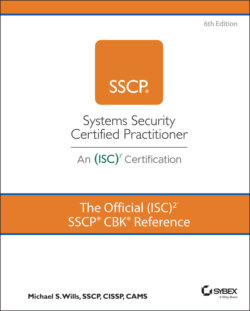Читать книгу The Official (ISC)2 SSCP CBK Reference - Mike Wills - Страница 46
OECD Privacy Principles: Basic Principles of National Application
ОглавлениеThe OECD Privacy Principles are used throughout many international privacy and data protection laws and are also used in many privacy programs and practices. The eight privacy principles are as follows:
1 Collection Limitation Principle: This principle states that data that is collected should be obtained by lawful and fair means, that the data subject should be aware of and consent to the collection of the data where appropriate, and that the quantity and type of data should be limited.
2 Data Quality Principle: This principle is aimed at the accuracy and completeness of data, whether it is appropriately maintained and updated, and whether the data retained is relevant to the purposes it is used for.
3 Purpose Specification Principle: Purpose specification means that the reasons that personal data is collected should be determined before it is collected, rather than after the fact, and that later data reuse is in line with the reason that the data was originally obtained.
4 Use Limitation Principle Security: This principle notes that release or disclosure of personal data should be limited to the purposes it was gathered for unless the data subject agrees to the release or it is required by law.
5 Security Safeguards Principle: Reasonable security safeguards aimed at preventing loss, disclosure, exposure, use, or destruction of the covered data are the focus of this principle.
6 Openness Principle: The principle of openness is intended to ensure that the practices and policies that cover personal data are accessible and that the existence of personal data, what data is collected and stored, and what it is used for should all be disclosed. Openness also requires that the data controller's identity and operating location or residence is openly disclosed.
7 Individual Participation Principle: This includes an individual's right to know if their data has been collected and stored and what that data is within a reasonable time and in a reasonable way. In addition, this principle allows the subject to request that the data be corrected, deleted, or otherwise modified as needed. An important element of this principle is the requirement that data controllers must also explain why any denials of these rights are made.
8 Accountability Principle: The final principle makes the data controller accountable for meeting these principles.
The OECD Privacy Guidelines can be found at www.oecd.org/internet/ieconomy/privacy-guidelines.htm.
In developing the guidelines, the OECD recognized the need to balance commerce and other legitimate activities with privacy safeguards. Further, the OECD recognizes the tremendous change in the privacy landscape with the adoption of data breach laws, increased corporate accountability, and the development of regional or multilateral privacy frameworks.
